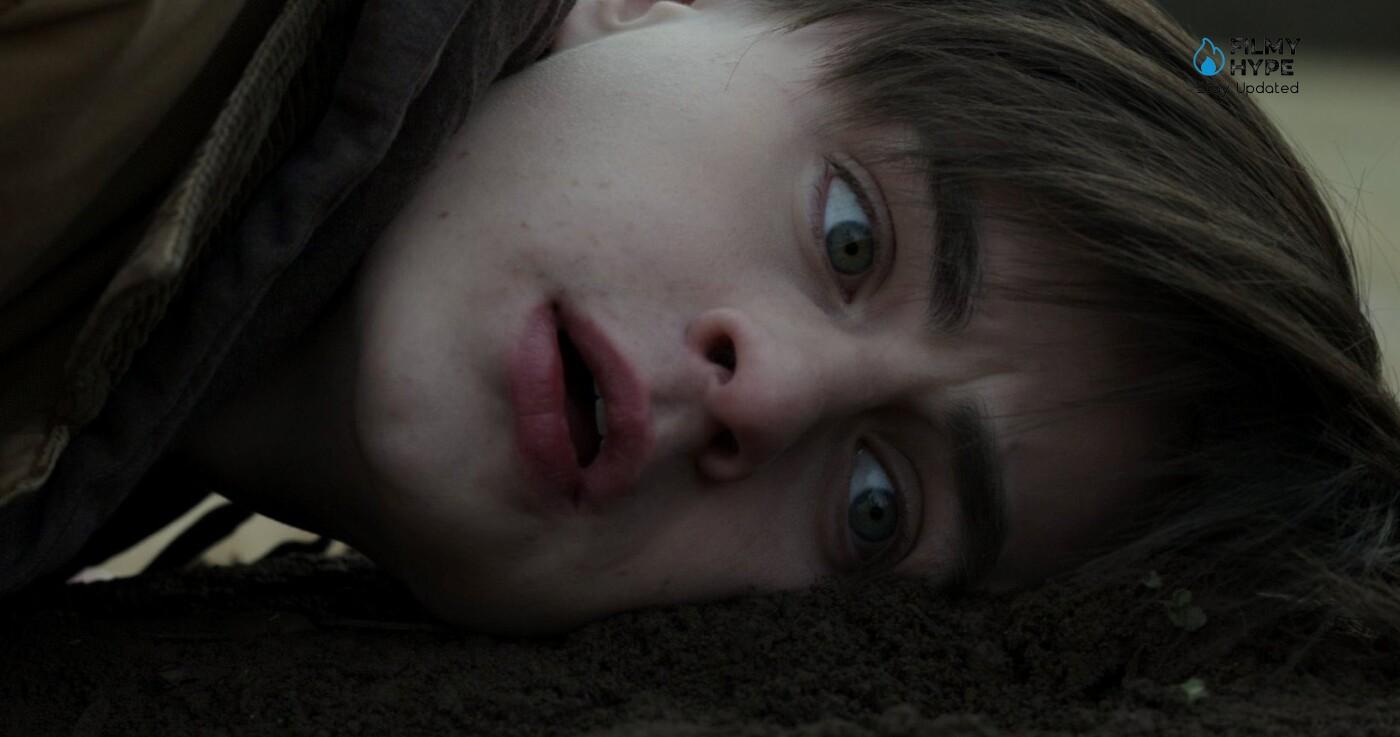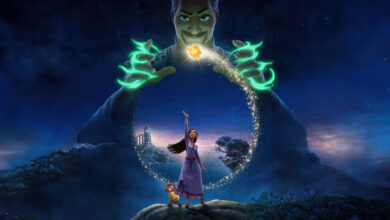Mr. Harrigan’s Phone Review: Netflix Film Manages To Grab Attention With The Stability Of A Plausible
Cast: Donald Sutherland, Jaeden Martell, Kirby Howell-Baptiste, Joe Tippett
Director: John Lee Hancock
Streaming Platform: Netflix
Filmyhype.com Ratings: 3/5 (three stars)
The new film written and directed by John Lee Hancock Mr. Harrigan’s Phone arrives on Netflix this Wednesday, October 5, who had already made Highwaymen – The Last Ambush for the streaming platform in the past, with Kevin Costner and Woody Harrelson. With Mr. Harrigan’s Phone, the American filmmaker chooses to direct a film under the double productive banner of Blumhouse and Ryan Murphy, based on a script he edited and based on the short story Mr. Harrigan’s Phone by Stephen King. The result is an adaptation from the page to the (small) screen that lacks too much artistic anonymity and too much adherence to the original literary material, despite sinister and intelligent cues and ideas. In our review of Mr. Harrigan’s Phone, we will focus on this ambivalent identity of John Lee Hancock’s film, so torn between excessive reverence for King’s work and cinematic ambition.

The morbid attachment to objects is reflected in a possession that twists to become its inverse when things possess people and not the other way around. The relationship with the mobile phone is the perfect example of the minimalist warning, with its eager load of petty information and cold human contacts, which empty any beauty of meaning, transforming it into everyday life. The echo of this visceral technological relationship also reverberates in the death within the first story taken from If it Bleeds, an anthological collection signed by Stephen King and published in 2020, which inspires the homonymous film written and directed by John Lee Hancock. The Blumhouse and Ryan Murphy production (his latest TV series rocked Netflix, as we told you in the Dahmer review) turns out to be a drama rather than a horror film, a plausible and well-told story that carries a universal message, but one that he doesn’t try to surprise his audience.
Mr. Harrigan’s Phone Review: The Story
Harlow, a small, isolated town in the countryside in Maine, is the residence chosen by John Harrigan (Donald Sutherland) to spend the last years of his life in peace, away from the din of the big cities in which he has lived up to that moment. The man is a billionaire little loved by the community for his shy nature, and not even the national press has been courteous to him during his long career, due to the very aggressive corporate movements that have made him rich and alone. After listening to him reading a verse in the Church, the wealthy old man hires little Craig (Jaeden Martell) to have the books he is in love with reading aloud, establishing over time a sincere friendship that will only abandon the day of his death. The boy learned a lot from Mr. Harrigan and his books, cultivating a deep relationship that he tried to solidify through the gift of a cell phone.
The gruff businessman initially rejects the item as useless and distracting, but later he realizes how to appreciate the wonders of technology and becomes almost inseparable from his iPhone. On the day of the funeral, Craig slips his smartphone into his deceased friend’s jacket to lull himself into the mournful dream of a still-existing bond, later taking to calling Mr. Harrigan’s grave to tell him about his loneliness and the problems he’s facing at school. However, what was only a fantasy born of pain manifests itself in terrible and violent responses, affecting Craig’s life and those who care about him. When young Craig agrees to go to the house of the ex-tycoon three times a week and surly Mr. Harrigan to read him some novels from his great library, the boy realizes that he cares about that mysterious man of a certain age, perhaps the only one.
A friend who owns, to thank him for all that Mr. Harrigan has done for him and his family over time, Craig gives him a brand-new iPhone; the initiation into the new technology will not be easy for the old Harrigan, so much so that he will end up in the grave before he has learned to discover all the infinite possibilities of the new mobile phones. To pay homage to the special relationship that had been created between the two of them, Craig puts the old man’s iPhone in his jacket pocket before Harrigan is finally buried underground; when a few days later the boy sends a text message to the cell phone of the deceased elderly man, he discovers with terror and dismay that he has received a reply message from Harrigan’s own iPhone number. How is all this possible? Was it a medical error and the old man is still alive and well or is there a ghost that has taken possession of the old man’s ex-cell phone?
Mr. Harrigan’s Phone Review and Analysis
Anyone who has followed Stephen King throughout his fantastic career knows very well that King is not only the author of scary stories but is above all a careful narrator of our society and its weaknesses. It is therefore not surprising the secondary role entrusted to the absurd in the story taken up by Hancock, with the otherworldly and inexplicable experiences to act as an added piece to what is simply the story of a boy torn between two mourning difficult to accept, a character who often wants to stop and think but is overwhelmed by the world around him that continues to proceed regardless of his pain.
The director of Up to the Last Clue, therefore, accepts the calm rhythm of a solid and full narrative, taking all the time necessary to paint the different facets of the different and complementary relationships established by the protagonist. The evolution of the friendship with the wealthy old man occupies a large part of the playing time, proving its essentiality in terms of plot, while it is only in the late sequences that those horrifying elements capable of upsetting a normal existence appear. The actions of Harrigan’s spirit, between incomprehensible messages and suspicious deaths, however, rarely find the honor of images but are analyzed through tales and stories of those who have witnessed events that are supernatural only for Craig, leaving it to his mind (and that of the viewer) the responsibility of turning them into concrete reality.
The desire to move away from the rawness of bloody situations underlines the fundamental message of the film, which uses the cinematographic method precisely to glorify the great stories and their narrators. The choice of books to read at Harrigan’s house is not accidental, each of them (among those shown in the minutes of the film) takes up the themes of money, power and the essential role of affection, making little Craig grow into a man. aware of what is important in life. On the contrary, his elderly friend is pulled out of that world he was the spokesperson for, his mobile phone – which, unlike books, does not need constant attention and active participation – replaces the unforgettable words of Dostoevsky and Dickens, pushing him away again from the boy after so many years spent chasing an unexpected relationship.
Loneliness is a preponderant element within the narrative because his main characters are unable to establish a true bond with anyone else – including Craig’s father, a man emptied of vitality by a bereavement that has hit him harder than his son -, and is also manifested through images thanks to a photograph that remains cold and unaffected for the entire duration of the film, even during the brief hints of the supernatural that enliven the story. As previously stated, these inexplicable events are minimal and naturally fit into a calm, plausible and well-told plot., but devoid of major jolts and unable to surprise its audience. On a technical level, some sequences edited with excessive speed turn up their noses, which clashes with the thoughtful cut sought by the film and is taken up by a very calm soundtrack, while the performance of a convincing Martell in its continuous presence on the screen is to be praised.
Mr. Harrigan’s Phone Review: The Last Words
The story taken from the latest anthology of short stories by Stephen King depicts the growth path of a boy in mourning, analyzing the value of friendship but also the spiritual traps of money and power. The film directed and scripted by Hancock faithfully takes up the King’s speech by orchestrating a solid film, very dense in terms of narration even in the absence of great jolts, capable of transmitting a message of hope and caution by inserting supernatural events sparingly into its plot. Despite its inability to wow audiences, the Netflix film manages to grab attention with the stability of a plausible (for the most part) story, graced by optimal, if not extraordinary, acting.






